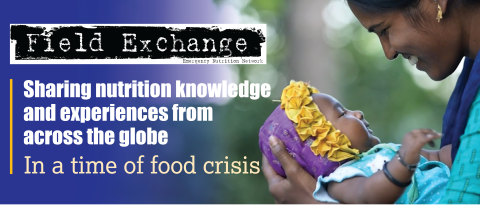Fortified balanced energy protein supplementation for pregnant women in Burkina Faso
This is a summary of the following paper: Hanley-Cook G, Toe LC, Tesfamariam K et al (2022) Fortified balanced energy-protein supplementation, maternal anemia, and gestational weight gain: A randomized controlled efficacy trial among pregnant women in rural Burkina Faso. The Journal of Nutrition, 152, 10, 2277-2286. https://doi.org/10.1093/jn/nxac171
Anaemia and suboptimal gestational weight gain (GWG) are associated with adverse maternal and birth outcomes. Maternal GWG is a cumulative measure reflecting the altering physiology of the mother, specifically the changes in maternal and foetal weights across pregnancy.
This randomised controlled trial, which took place in rural Burkina Faso, enrolled pregnant women aged 15–40 at <21 weeks of gestation. The study assessed the efficacy of a micronutrient-fortified balanced energy protein (BEP) supplement on the outcomes of anaemia, GWG, and GWG rate in relation to the Institute of Medicine (IOM)’s recommendations (categorised into severely inadequate, inadequate and excessive GWG), compared against iron–folic acid supplementation.
Women in the intervention group received a daily fortified BEP supplement and an iron–folic acid tablet, whereas women in the control group only received the iron–folic acid tablet. The BEP supplement was a daily 72 g lipid-based nutrient supplement in the form of an energy-dense peanut paste fortified with multiple micronutrients. The BEP supplement provided 393 kcal/d and 22 mg/d of iron. All women received malaria prophylaxis at the relevant antenatal care visits. Haemoglobin (g/dL) concentrations were measured at baseline and at the third antenatal care visit, whereas maternal weight was measured at baseline and at all subsequent ∼7-weekly antenatal care visits. Statistical analyses followed the intention-to-treat principle.
A total of 2,016 women were assessed for eligibility, of whom 1,897 were randomly assigned (960 control, 937 intervention) and 119 were excluded for not meeting the trial’s inclusion criteria. Approximately 3% of both control and intervention arms were lost to follow-up at the third antenatal care visit. A further 22 control (2.42%) and 27 intervention arm mothers (3.07%) were lost to follow-up before delivery.
The results show that a combined daily BEP and iron–folic acid tablet had no effect on maternal Hb concentration, anaemia or prevalence of severe anaemia. In the combined BEP and iron–folic acid arm, maternal GWG was 6.27 kg, and the GWG rate was 0.274 kg/week, but both indicators showed no significant difference in comparison with the control arm. There were also no significant differences between study arms in terms of GWG adequacy, inadequate GWG, severely inadequate GWG or excess GWG prevalence. The main (null) findings were further confirmed by subsequent models that adjusted for various factors at baseline, as well as by the per-protocol analysis. Nonetheless, the full case analysis showed small but significant differences in absolute GWG and GWG adequacy.
In conclusion, the study showed that fortified BEP supplementation did not reduce maternal anaemia, nor did it increase GWG, in comparison with iron–folic acid. The authors suggest that future randomised interventions might assess whether preconception environments conducive to adequate GWG allow the mother to be more nutritionally replete, therefore channelling the additional nutrients from supplementation to support improved foetal growth and development.


